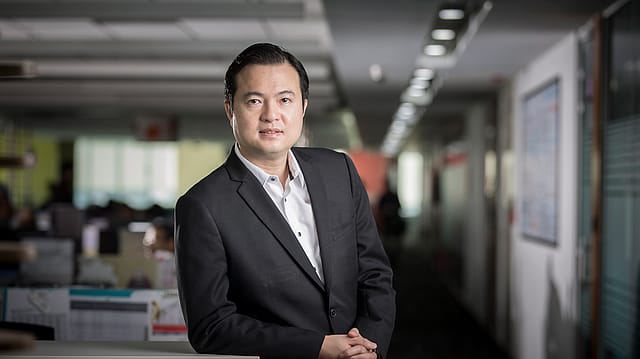We want to be a global full-service carrier: Leslie Thng
ADVERTISEMENT

As one of the youngest airlines in an increasingly competitive industry, Vistara has managed to stand out by refusing to be seen as a low-cost carrier. A joint venture between Tata Sons and Singapore Airlines (SIA), which was launched in 2015, the airline now plans to fly international.
We met the CEO of the company, Leslie Thng, and asked him what’s next for Vistara. Thng, an SIA veteran moved to India to head the airline last year. Edited excerpts:
What were your priorities when you took over as the CEO of Vistara in October last year?
One of the key goals when I joined this airline was to go international as soon as possible…To scale up the operations of the carrier for both domestic and international so that we can bring the brand Vistara, which has been well accepted by Indian passengers, into the overseas market so that we progress to become a renowned global airline.
Is break-even a priority for you right now, given that the company is still relatively new?
Of course, break-even is a priority for every company. We know that we are operating in a highly competitive market. In the past three years, we have been able to achieve a better financial performance year-on-year although we are not yet profitable. When you look at the whole competitive landscape, the vision for the company is not just domestic but to also commence international operations. That is where, we believe, lie a lot of opportunities for an Indian carrier.
January 2026
Netflix, which has been in India for a decade, has successfully struck a balance between high-class premium content and pricing that attracts a range of customers. Find out how the U.S. streaming giant evolved in India, plus an exclusive interview with CEO Ted Sarandos. Also read about the Best Investments for 2026, and how rising growth and easing inflation will come in handy for finance minister Nirmala Sitharaman as she prepares Budget 2026.
Will your international network be very different from that of Singapore Airlines or will you get some benefits of SIA?
Our travel pattern, the demand, the population size that we cater to, is very different [from SIA]. We want to be a global full-service carrier, which means that Vistara will have to fly to many countries around the world. Southeast Asia will be one regions that Vistara will fly to. Other regions that we may look at are countries in North Asia and Europe.
So all this is going to be very different from SIA because it is an airline based out of Singapore using their strengths to offer travel opportunities, whereas we are a carrier based out of India, offering travel options to Indian travelers to many parts of the world. We will also like to get fliers from the other side, be it NRIs or other foreign nationalities, to fly with us.
Are alliances going to be important for Vistara?
Alliance is not an immediate priority for us. What we are looking at right now are like-minded partners instead of looking for alliances. So when we say that we want to fly to South East Asia, then we need look for a partner that can provide us feed for those routes and Singapore Airlines will be a natural candidate for us. When we look at flying to North Asia or Europe, we would look for carriers who are very strong in that region and can provide us the feed on those routes.
So how do you differentiate from foreign carriers who are trying to woo Indian international travelers with customized on-board services?
Food & beverage is one part of the whole travel experience. There are other services on board and on the ground that also add to the overall travel experience of the customer. I think this is where we will be able to provide services more suited to the Indian customers, because a lot of [flight] personnel would be Indians who know Indians better than other carriers, and that will give us an advantage.
You are entering the international market at a time when a few other Indian carriers too plan to expand internationally. How do you plan to beat the competition?
We need to understand that this [international travel market] is a market that will continue to grow and that the pie will continue to grow. It is not a market where everyone will fight for what is left. I think this is a market for different business models. There will be consumers who are extremely price conscious and there will be products that cater to those consumers. But at the same time, we believe that this market also has a section of customers who prefer to travel more comfortably, who would prefer to travel with an airline that gives them value for money and we feel we will be able to offer that product quite effectively. But yes, we need to be aware of the competition but not be worried.
What are the challenges as an airline operating in India?
Infrastructure is a challenge. We are working very closely with the relevant authority. The government has taken several initiatives to add capacity to the airports. The second challenge is the high taxation in India as compared to other countries that adds to the operational costs. This is one area where the entire industry is working closely with the authorities in order to make the industry more competitive.
Do you think India can become a global hub for aviation?
I think the opportunity is there. India is quite well located so why not. We are in a position to tap the market but what we require is an operating environment that encourages the creation of a hub.
Find a detailed story on Vistara's global foray in our latest issue. On stands, and on Magzter: https://bit.ly/2DbRAyR
